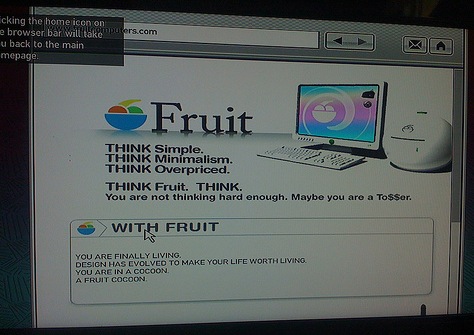Without Google's muscle behind it, Yahoo's chances for digging out of a long slump are looking even poorer, making it appear more likely that the company will turn to Microsoft or AOL to help weather the economic downturn.
Yahoo Inc., which runs the No. 2 search engine, agreed in June to let No. 1 Google Inc. sell some of the ads shown next to Yahoo's search results. The deal was intended as a lifeline for the struggling Internet pioneer after it spurned Microsoft's rich $47.5 billion takeover bid less than a month before.
Now that Google has scrapped the Yahoo partnership rather than challenge the Justice Department over its antitrust objections to the deal, Yahoo is back where it began the year, scrambling to engineer a turnaround under a management team on shaky ground with shareholders.
Except now, the climate is much worse. The crumbling economy is discouraging advertisers from spending online, particularly on the billboard-style display ads that are Yahoo's bread and butter. Sunnyvale, Calif.-based Yahoo, already adjusting, announced it would lay off 10 percent of its work force after profits plunged 64 percent in the most recent quarter.
Yahoo Chief Executive Jerry Yang may have wrung the last drops of shareholder goodwill by betting on a Google deal instead of taking Microsoft's offer. To avoid getting pushed out by Yahoo's board, which now includes activist investor Carl Icahn, Yang is under intense pressure to boost the company's bottom line.
In an appearance Wednesday night, Yang said Microsoft Corp. would be wise to make another bid for his company, though he didn't suggest a price. Yang turned down Microsoft's offer of $33 a share in the spring, and now finds Yahoo trading around $13.
"To this day, I believe the best thing for Microsoft to do is to buy Yahoo," Yang said Wednesday.
Barring that, his list of options is limited, and the most obvious moves have been on the table for months.
Imran Khan, an analyst for JP Morgan, said he believes it would make sense for Yahoo to sell its search operations to Microsoft — an idea that Microsoft proposed this spring but Yahoo rejected.
The result would be cost savings for Yahoo, and more energy to focus on the display ad business. Khan estimates $1.4 billion in cost savings or, after factoring out $694 million in lost annual revenue, a net gain of $725 million. Yahoo could use the cash to buy back stock, make smart acquisitions and "more strategic, targeted head count reductions," Khan argues.
"We think continued investment in search, at the expense of display investment, has given competitors the opportunity to bite into Yahoo's leading display ad market share," Khan wrote in a recent research note.
Yahoo shareholders are still interested in some sort of Microsoft deal, and despite Microsoft's current stance that it doesn't need Yahoo to challenge Mountain View, Calif.-based Google, many industry watchers think the software maker is still interested, to a point.
Matt Rosoff, an analyst for the independent research group Directions on Microsoft, said he can't see Microsoft buying all of Yahoo, for the same reasons talks fell apart in the first place: Microsoft was hoping for a quick and painless integration, but Yahoo resisted.
Rosoff said he does think Microsoft will consider buying Yahoo's search business, but not in the next few months.
"At this point, given how the online ad market has changed and how the overall economy has changed, they might just wait for Yahoo's situation to get worse," the analyst said. Microsoft may also wait to "see what happens to Google and their revenue. Perhaps Google won't look like a threat, and Internet advertising won't quite look like such a good business."
Rosoff said he could also see Microsoft trading its MSN Web portal for Yahoo's search engine, or configuring a similar swap.
Rob Sanderson, an analyst for American Technology Research, noted that giving up its search business to Microsoft would undercut one of the pillars of Yahoo's go-it-alone strategy, that having both search and display ads will eventually pay off more than keeping just one.
So for Yahoo to benefit from selling its search engine to Microsoft, the price would have to be a lot sweeter than the $1 billion Microsoft offered last time, Sanderson said.
But Microsoft made that offer knowing Yahoo's Google partnership was in the works. Now that the deal is off the table and Yahoo's shares are foundering, the software maker has little incentive to raise its bid.
Last week, the Redmond-based software maker reiterated the message that it's no longer interested in acquiring Yahoo. The company would not address whether it would consider buying Yahoo's search operations separately.
An alternate possibility for Yahoo: acquiring at least a slice of Time Warner Inc.'s AOL. Melding two companies seen as dot-com has-beens is unlikely to yield a new powerhouse, but if Yahoo has the stomach to eliminate scores of redundant jobs, the combined company could be more efficient and profitable.
The idea is less popular with Yahoo shareholders, but such a deal could augment Yahoo's display advertising business. AOL operates Platform-A, the largest ad network in the U.S., which lets advertisers buy display ads across AOL's own sites, like gossip news source TMZ.com, and those of outside publishers like Merriam-Webster.
In September, 91 percent of U.S. Web surfers visited a page on the Platform-A network, according to research group comScore Inc. That's more than the 86 percent who visited a Yahoo ad network page or the 83 percent who landed on a Google ad network page.
However, AOL's online advertising business isn't as lucrative as Google's or Yahoo's despite its wider reach. Time Warner said AOL's ad revenue fell 6 percent in the third quarter.
On the search-advertising side, Yahoo's potential gains from an AOL acquisition are also unclear. For one thing, Google, which owns a 5 percent stake in AOL, currently operates AOL's search — presumably raking in more money than Yahoo could get if it took over.
Mark May, a Needham Co. analyst, argues that a deal between AOL would be fraught with problems, from the companies' disparate cultures to their different technology platforms.
Buying AOL could, ironically, make Yahoo a more appealing target for Microsoft, especially if the buyout goes badly. Microsoft could wait a few months, then vacuum up two competitors, which still attract large online audiences, at a bargain rate.
Yahoo does have another choice: slash costs and accept its lot as a distant second to Google. The company's recent layoff announcements indicates to Sanderson that Yahoo is more willing to do so than it was in the past.
"Their aspirations for being a huge player," he said, "were a little bit too lofty."
















